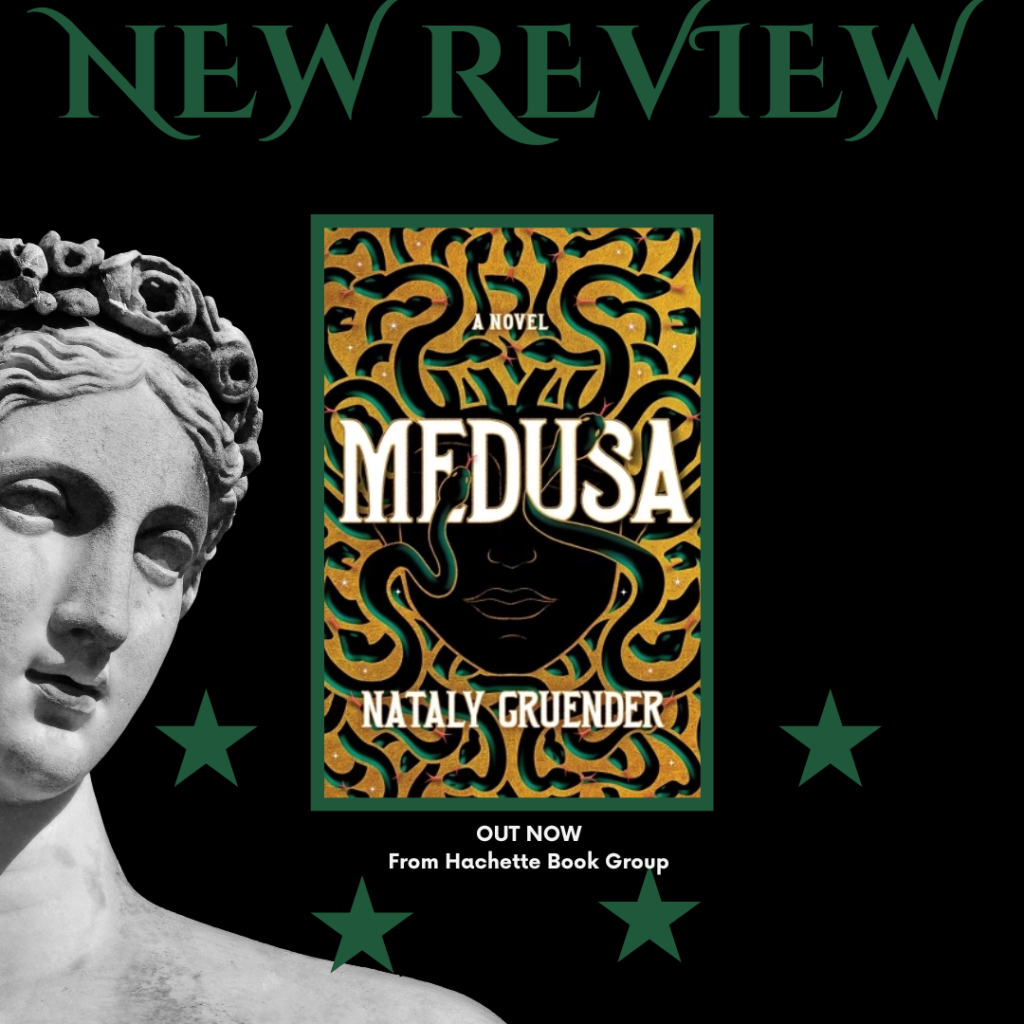
Medusa out now from Hachette Book Group; 432 pages
Content Warning: Sexual assault
About the Author: “Nataly Gruender was born and raised in Arizona and found an escape from the desert heat through her library card. She studied English, Creative Writing, and Classics at the University of Arizona and is a graduate of the Columbia Publishing Course. Giving in to the siren call of New York, Nataly booked it across the country, and when she’s not working or writing she likes to pet other people’s dogs and spend too much time in used bookstores. She currently lives in Brooklyn, NY” (Bio from Hachette Book Group).
Find Nataly Gruender on the following platforms:
Medusa has always been the outcast of her family. As the only mortal daughter of two gods, she has been searching for a place where she belongs. After leaving her family, Medusa finds solace in being a priestess of Athena—that is, until she is assaulted by Poseidon, the god of the sea. Angered by Poseidon’s violation of her sacred temple, Athena transforms Medusa into the monster of the myth she’s best known for: a gorgon who can turn people to stone with one look. As word spreads of her new curse/blessing, Perseus is sent by a king to bring him Medusa’s head so they can stop living in fear of her power and the destruction she seems to cause.
One of the first things I really enjoyed about Medusa were the different section titles. My favorite was “A Sisterhood of a Different Kind,” which was aptly named after inspecting Medusa’s relationship with her sisters and how that relates to her life after she becomes one of Athena’s priestesses. Additionally, I enjoyed the different perspectives occasionally sprinkled throughout the retelling. My only concern with the difference in perspectives was regarding the shift from Medusa’s first person narration to the others’ third person narration, which wasn’t necessarily bad but was a syntactical choice that left me a bit perplexed. Perhaps the shift in narration was another way of distancing Medusa from everyone else, serving as another way to highlight her as an outcast. This shift in narration was unique and it’s definitely something I haven’t seen in other books before, but I began to enjoy it as I continued reading. Since many people are familiar with the lore surrounding Medusa to some degree, it was refreshing to see a version of the myth that didn’t paint her as the villain. In particular, I enjoyed the exploration of her relationships with Dionysus, her sisters, and Euryale. It was also interesting to see the aftermath of Medusa’s death and the concluding scene with Athena. Despite its depressing nature, the version of the myth that Gruender uses as the driving force of the plot creates the foundation for a story full of beautiful characterization and complex relationships between gods, mortals and monsters. Overall, Medusa is the perfect read for anyone who enjoys Greek mythology and is specifically looking for a YA, feminist retelling of a classic myth.
Vanshikha Vij, Pine Reads Review Writer